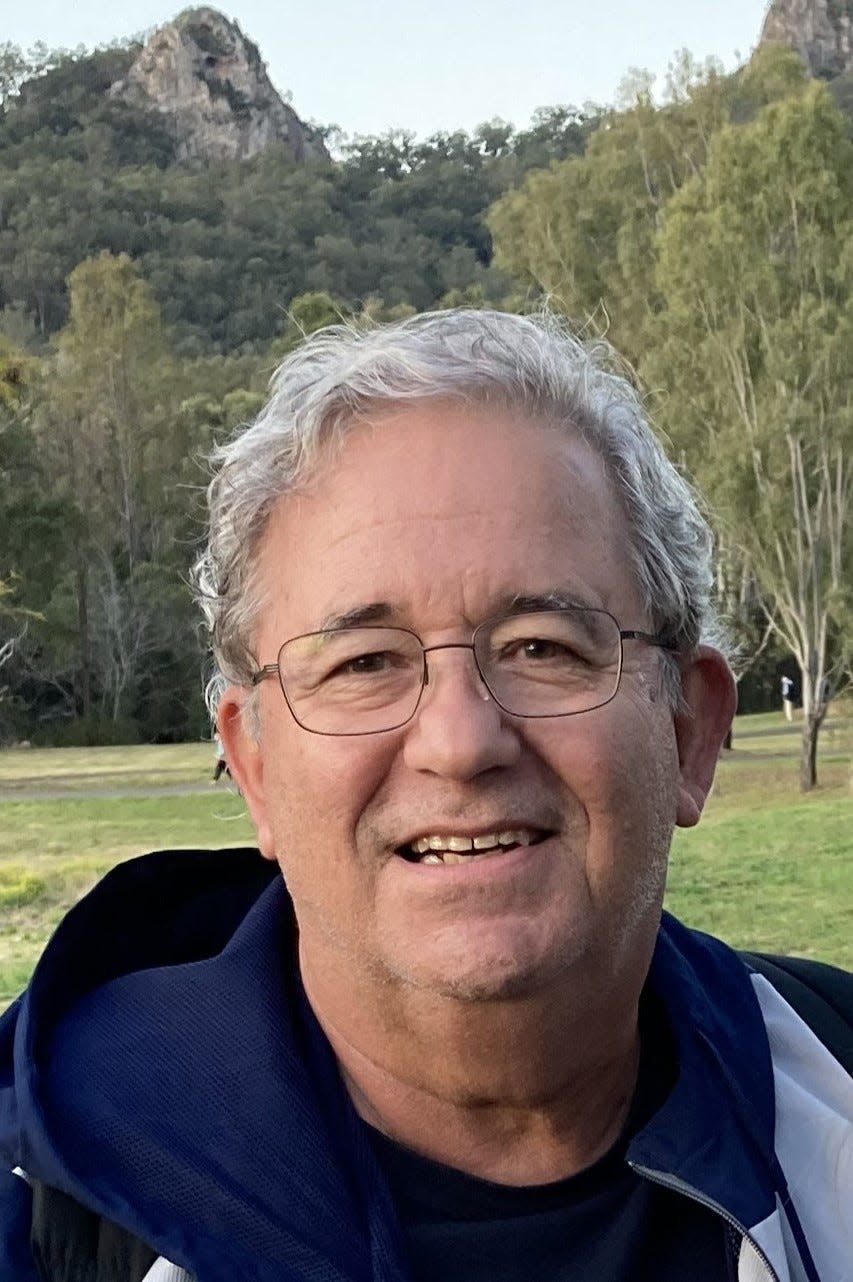Opinion: US should do more to help Latin American neighbors build better lives
During one of my trips from Washington, D.C., back to my home country of El Salvador, I took a taxi from the airport to San Salvador and engaged the driver in conversation. I asked him why so many people were leaving El Salvador for the United States. He told me that he had just sent his 12-year-old son unaccompanied to the U.S. border because he was being bullied by his schoolmates to join a violent gang at school.
It is not only the threat of gangs and street violence that push people away from their own countries, but immigrants also escape from all kinds of social injustice, poverty, inequalities, lack of opportunities, lack of services, police brutality and unbelievably bad public schools.
The allure of a better life, obviously, pulls people to the United States. Consider that in most developing Latin American countries, factory workers, public school teachers and nurses, for instance, earn average wages of about $400 per month, compared to average monthly earnings for factory workers, teachers and nurses 10 times that amount in the United States. Plus, the other benefits of having running water, electricity, trash collection, good transportation, safer streets and exceptionally good public schools.
Having all these services and earning 10 times more in the U.S. than in your home country sounds like a promising idea, and for tens of thousands, it is a treacherous journey worth taking.
Over the years, immigrants from all over the world have been driven by the desire to provide a better life for their children. This aspiration drove millions of people from Europe to settle in this country in the 18th and 19th centuries. Today’s immigrants from Latin America have the same aspiration. They are no different, except for the sound of their names and the color of their skin.
In the past 50 years, over 6 million immigrants have arrived in the United States from three countries: Guatemala, Honduras and El Salvador (“The Northern Triangle” as the U.S. State Department calls them).
I am an immigrant, born and raised in El Salvador and have spent more than 40 years of my professional career living and working in many countries in Latin America. Many of the consulting jobs that I did were funded by the U.S. Agency for International Development (USAID).
Under the Obama Administration, there was an attempt to address the push factors that create migrants. USAID allocated $20-$30 million for development programs in each Northern Triangle country. This was such a small amount of money, that didn’t stop people from leaving. Adding insult to injury, President Biden’s predecessor killed the program, arguing that the money could be better used for the border wall.
Currently, the USAID website says: “To help our neighbors build the peace, prosperity, and stability they deserve, USAID is addressing the root causes undermining people’s hope for their futures in El Salvador, Guatemala, and Honduras. USAID just announced $42.5 million in new humanitarian funding for El Salvador, Guatemala, and Honduras. This brings USAID's total humanitarian funding for these three countries to $261 million since April 2021.” This amount of money will not even begin to scratch the surface of the problem. An investment of about $3 billion dollars in the next five years could address some of the root causes of the push to the United States from Guatemala, El Salvador and Honduras.
It is important to note that $3 billion dollars is not going to solve the problem for good. People will continue to come, and they should be welcomed because they are important contributors to the U.S. economy. For instance, in North Carolina, the Carolina Forward Research Team estimates that the economic impact of 350,000 undocumented immigrants living in the state is estimated at between $258 million-$359 million in sales taxes, property taxes and state income taxes — that immigrants pay regardless of their legal status.
Instead of building a wall, the resources of the United States can better be used by investing in ways that help people stay in their own country.
More: Opinion: Pleasing Donald Trump more important to Republicans than solving border issues
More: Western NC congressman bashes Biden over immigration using Trump-era migrant caravan photo

Carlos Linares is an international development and environment specialist with 45 years of experience. He serves as Chair of the Buncombe County Democratic Party Hispanic Outreach Committee, Secretary of the Lake Committee in Biltmore Lake, and member of the Community Advisory Board of Blue Ridge Public Radio/NPR.
This article originally appeared on Asheville Citizen Times: Opinion: Poverty, gang violence, drive Latin American migration to US

